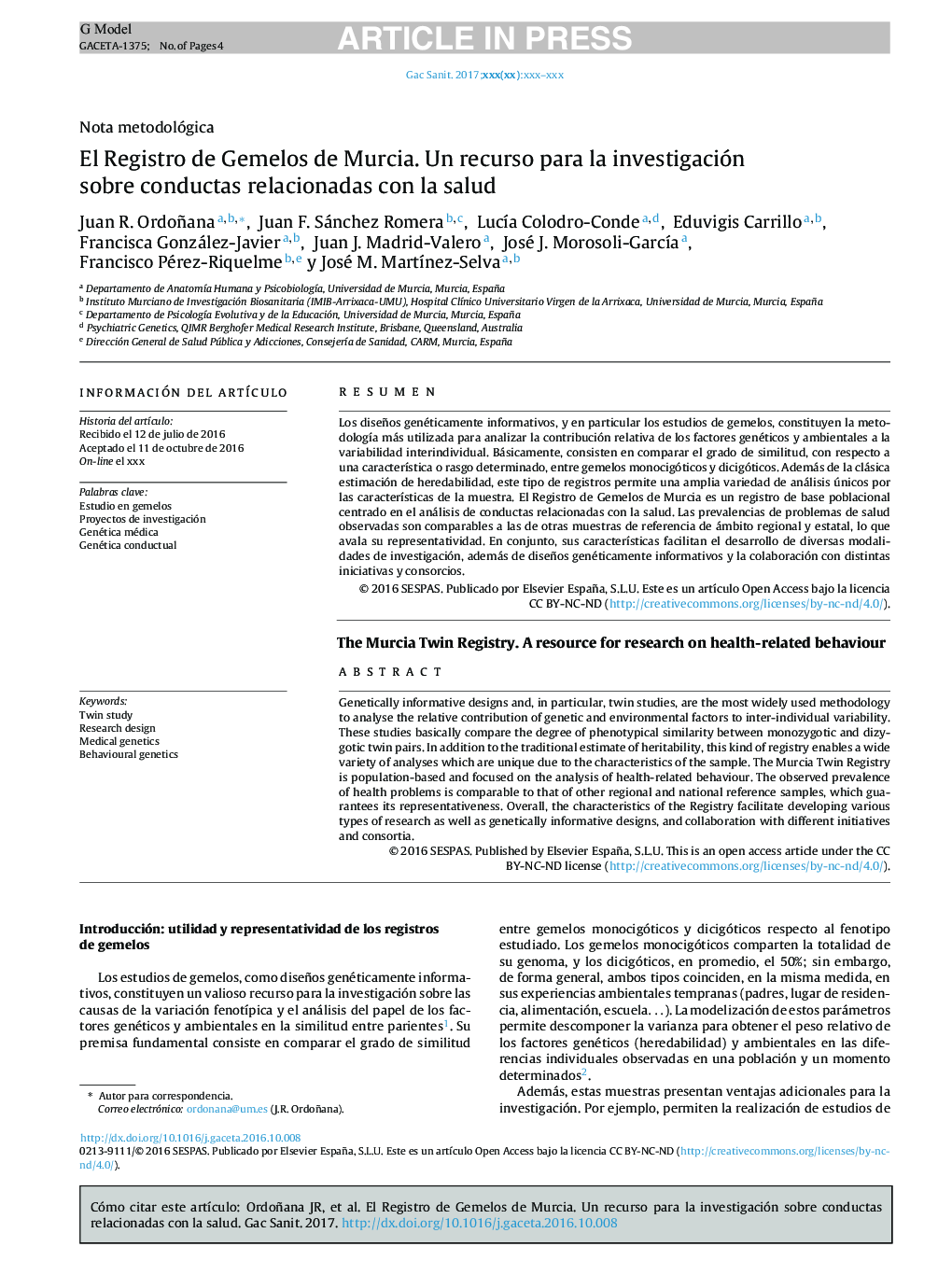| Article ID | Journal | Published Year | Pages | File Type |
|---|---|---|---|---|
| 7510853 | Gaceta Sanitaria | 2018 | 4 Pages |
Abstract
Genetically informative designs and, in particular, twin studies, are the most widely used methodology to analyse the relative contribution of genetic and environmental factors to inter-individual variability. These studies basically compare the degree of phenotypical similarity between monozygotic and dizygotic twin pairs. In addition to the traditional estimate of heritability, this kind of registry enables a wide variety of analyses which are unique due to the characteristics of the sample. The Murcia Twin Registry is population-based and focused on the analysis of health-related behaviour. The observed prevalence of health problems is comparable to that of other regional and national reference samples, which guarantees its representativeness. Overall, the characteristics of the Registry facilitate developing various types of research as well as genetically informative designs, and collaboration with different initiatives and consortia.
Related Topics
Health Sciences
Medicine and Dentistry
Public Health and Health Policy
Authors
Juan R. Ordoñana, Juan F. Sánchez Romera, LucÃa Colodro-Conde, Eduvigis Carrillo, Francisca González-Javier, Juan J. Madrid-Valero, José J. Morosoli-GarcÃa, Francisco Pérez-Riquelme, José M. MartÃnez-Selva,
